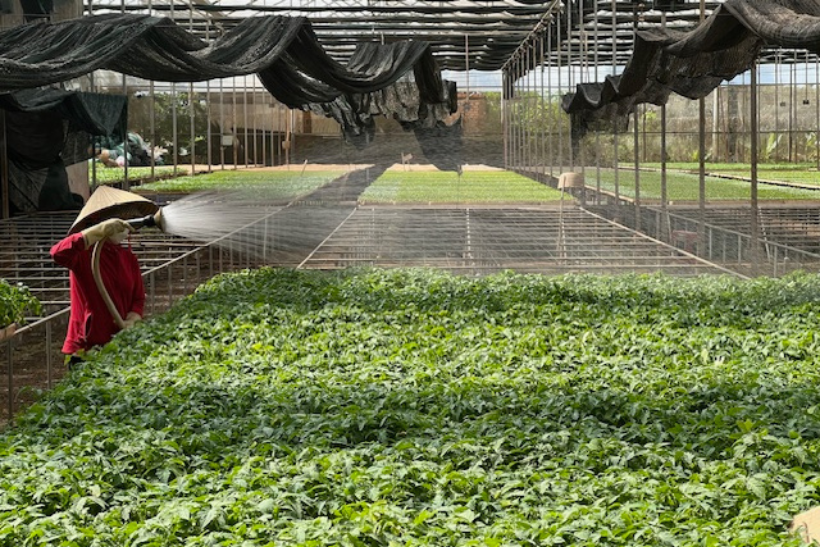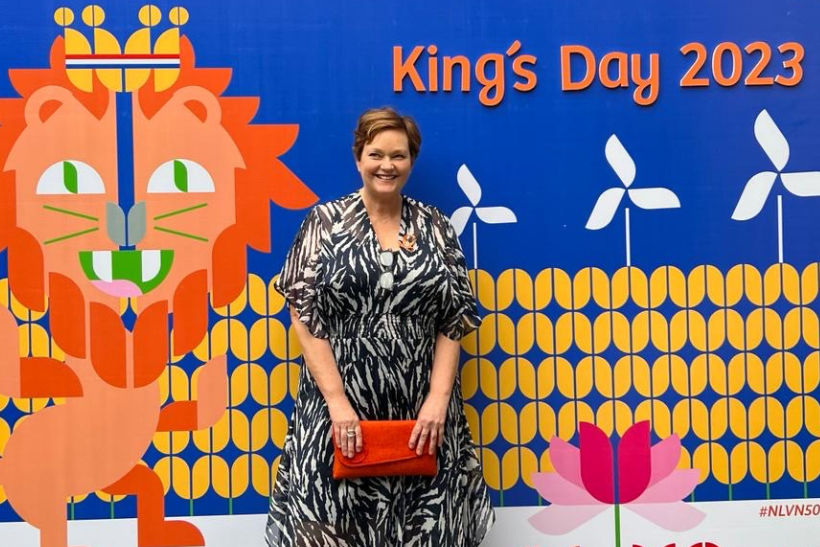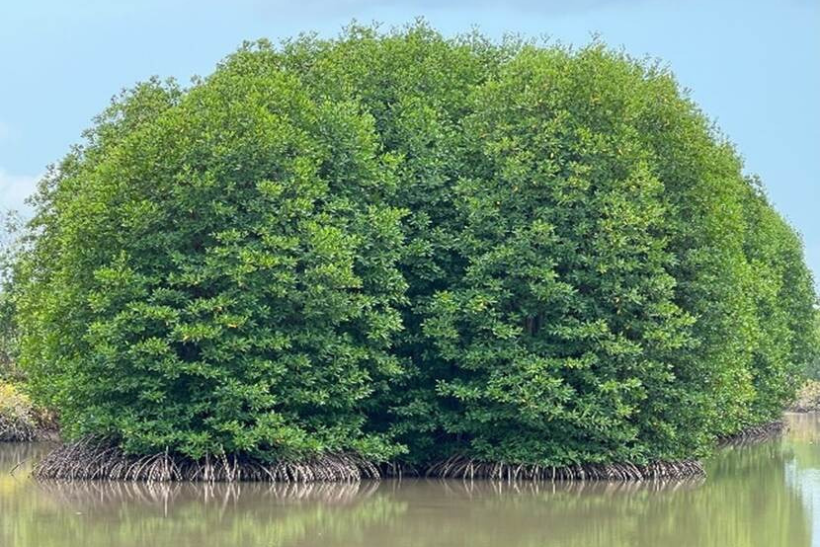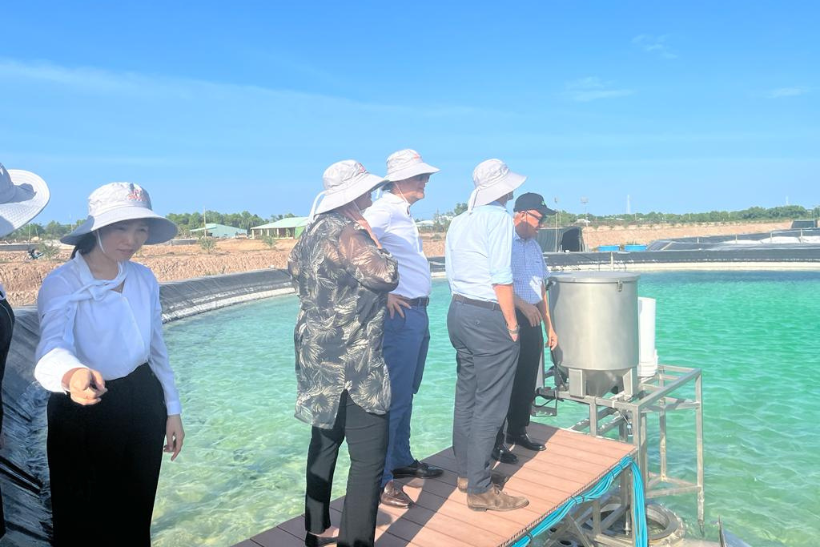Vietnam and the Netherlands: two delta countries working together
Much like the Netherlands, Vietnam is a delta country with significant water challenges. It has a complex network of rivers and a coastline that is particularly vulnerable to climate change. The country is confronted with droughts and salinization, threatening the agricultural productivity of the local farmers. Ingrid Korving, Agricultural Counselor in Vietnam and stationed at the Dutch embassy in Hanoi, discusses these issues and the innovative water management initiatives to address them.

There are prominent water issues in Vietnam. The Mekong Delta in the south and the Red River Delta in the north face issues such as drought and salinization. In addition, fresh water availability is decreasing. The rivers are drying up, meaning Vietnam needs to find other fresh water resources. Also, water is currently not taxed enough in Vietnam, so it is used as if there is no limit, particularly by industries. For any measures to be effective, Ingrid Korving notes that raising awareness on water issues and usage is crucial for long-term transformation and driving system change.

“One aspect that makes awareness raising difficult is that 90% of the agricultural sector in Vietnam is smallholder.”
Awareness of water issues in Vietnam
“One aspect that makes awareness raising more difficult in Vietnam is that 90% of the agricultural sector is smallholder. The farms are so small, that working on an individual level won’t be effective. Awareness raising at the provincial level is therefore crucial. However, it would be most efficient to implement water taxes, as it directly stimulates the adoption of efficient water management technologies, such as rainwater harvesting and recirculation systems.”
To create awareness of water scarcity and salinity, the Netherlands Agricultural Network (LAN) team at the Dutch Embassy in Vietnam works through the private sector to showcase successful projects and create a proof of concept. “The culture in Vietnam regarding innovations is mostly based on 'seeing is believing'. Showcasing sustainable water management techniques creates dialogues and can indirectly influence people’s awareness, behavior and policy,” Korving explains.

The Living Lab Delta Project
A significant initiative in the Mekong Delta is the Living Lab Delta project, a collaboration between the Thuyloi University in Hanoi and TU Delft. Korving: "The Living Lab serves as proof of concept, demonstrating the practical application of Dutch expertise in Vietnam's unique climate. Oftentimes, new water technology or strategies are demonstrated in a research setting. The Living Lab, on the other hand, shows how these measures work out in a real situation and in Vietnamese climate, demonstrating and convincing local communities that sustainable water management can work for them too.”
“One significant area of focus is the mangroves, which are natural flood protectors. As the Mekong Delta is very vulnerable for floods, it is important that these mangroves stay intact. However, these natural barriers are often cut in order to make room for dikes or bridges. For the communities, it is economically more profitable to have dikes since people can use roads from one side to another, creating trade flows and connections to other cities. To create a different narrative, we try to find business cases within the Living Lab that can demonstrate the economic and environmental benefits of preserving mangroves, such as using them for coastal protection, biodiversity, and sustainable aquaculture."
“Vietnam's approach to water management aligns with the three strategies of the Dutch Ministry of Agriculture, Fisheries, Food Security and Nature’s international water policy.”

International water policy
Vietnam's approach to water management aligns with the three strategies of the Dutch Ministry of Agriculture, Fisheries, Food Security and Nature’s international water policy. Korving: "We focus on optimizing the current situation through efficient water use, cover cropping and improved irrigation. For instance, in the Mekong Delta, rice has been growing for thousands of years, but this crop is severely affected by salinity. To transform agricultural practices, we are working together with farmers on the usage of crops that are much more tolerant to salinity, such as tropical fruits and shallots.” Korving continues, “Regarding freshwater availability, we are working on rainwater harvesting and recirculation systems for horticulture and aquaculture. This will reduce the dependency on diminishing freshwater sources."
Korving notes the positive reception of these initiatives locally. "The Netherlands is seen as a preferred partner in water management and agriculture, thanks to our strategic partnership and the many Vietnamese professionals trained in the Netherlands. Our expertise in sustainable water management and agriculture is recognized all over the globe, but especially in Vietnam.”
One-size-fits-all?
Korving concludes with her lessons learned over the course of her career in different countries. "Each country is unique, so there's no one-size-fits-all solution. Strategies must be tailored to local circumstances, considering the economic, political, and environmental contexts. Public-private partnerships have been particularly effective in Vietnam, combining policy and practical demonstrations to drive change. It's crucial to remain adaptable and responsive to local needs and conditions."
More information and contact
For more information, you can visit the country page of Vietnam on the website Agroberichtenbuitenland.nl of the Dutch Ministry of Agriculture, Fisheries, Food Security and Nature. You can also send an e-mail to the LAN team at the Dutch Embassy in Hanoi: han-lnv@minbuza.nl.
This article is part of the 12th edition of the e-magazine Agrospecial titled "Tackling agricultural water challenges worldwide" (originally published on August 23, 2024).
In this Agrospecial, the Netherlands Agricultural Network (LAN) showcases the opportunities and challenges associated with water management. The Agricultural Counselors in Côte d’Ivoire, Mexico, Saudi Arabia, South Africa, Spain, and Vietnam introduce us to their related work, provide insights into what is happening in their respective countries, and highlight examples of how LAN is tackling water challenges through international collaboration.